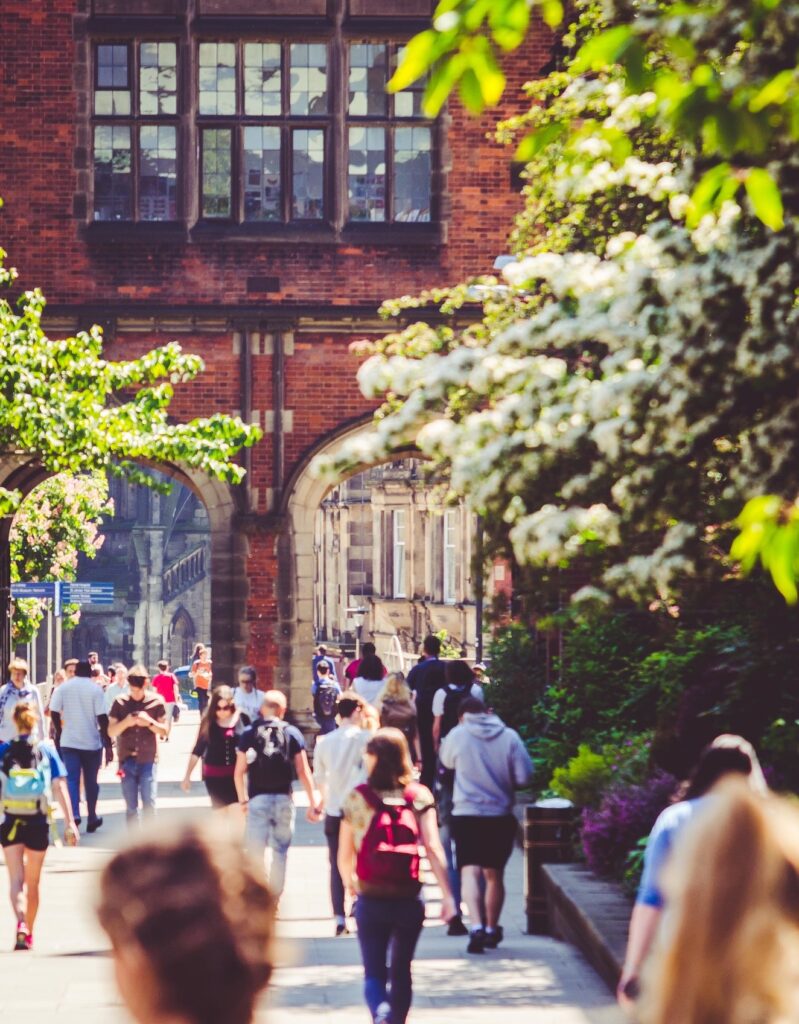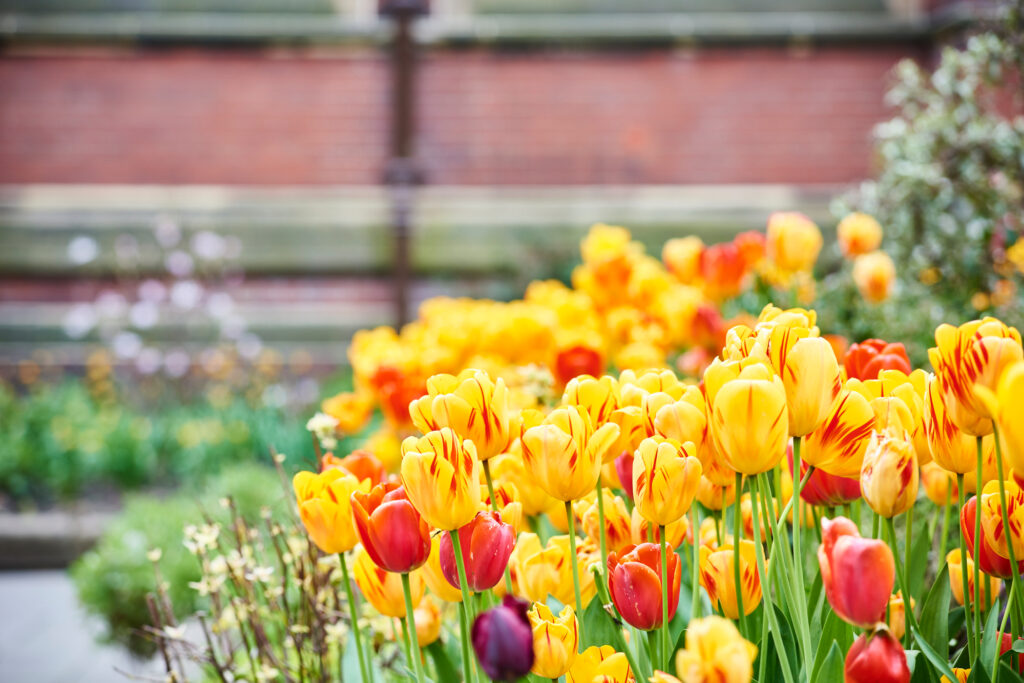Bees provide a range of important services that help maintain the health and vibrancy of our natural environment in both rural and urban settings. In our beautiful city-centre campus, for instance, urban bees assist our Grounds Team in caring for greenery from the wildflower meadows in Claremont Court to the tulip beds outside King’s Gate. To learn more about these fascinating creatures and their role in creating our sustainable campus, I had a chat with the lovely people at Newcastle University’s Bee Society.

How many beehives does the Society have and how long has the University had bees?
“At present there are 2 beehives, although the number fluctuates between 2-4 depending on how the years go – our hives are called Mary and Delilah! We’ve had bees since the mid-2010s.”
I see! Do you know if there are any other urban beehives in or around the University?
“While I haven’t interacted with them, I’m aware that other university staff have beehives for the sake of research. Newcastle is also home to a chapter of the BBKA (British Beekeeping Association) so it’s safe to assume that there are a few beekeepers knocking around locally.”
So, what sort of thing does the society do to care for the bees?
“The nature of beekeeping changes depending on the season – understanding the calendar and how to respond to it is vital to successful care. In the summer we check on the hives once a week (weather permitting), as the time between April-July is prime for swarms. In early spring and the autumn, we check on them far less frequently, once a fortnight or so. In the winter we don’t go in the hives at all.
How long our checks take is also dependent on the time of year. In the summer it often runs up into the 2-hour mark! We use an acronym to remember what needs to be looked for: D.E.F.R.A, which stands for Disease, Eggs, Food, Room, and Anything Else. The presence of food and eggs are often my main concern, and after a certain point the observations become second nature.
We always wear suits and gloves for the sake of our members. Stings do occur from time to time, but to a significant extent the victims are members of committee who have to engage with the bees when they are at their most defensive. While this is scary at first it is something you get used to over time; I have been known to scold the hives when they’re acting up!”
And do the honey and wax get used for anything?
“When there is surplus honey, we collect it. Last year we involved our members in the processing of the comb and this went down very well, but it isn’t a priority for us. Excess wax has been used by a few of the University’s fine art undergraduates in the production of candles.”
That’s super interesting! How can people get involved?
“The primary way that people can get involved is to join the society! While the hives are now being left alone for the winter, we have talks running throughout the colder months and are always happy to share our knowledge and experience.”

How do the bees help with local biodiversity?
“Bees are vital to the healthy functioning of plant life and our bees can often be seen collecting pollen and nectar from the flowers on campus. They roam quite widely – up to a distance of around 5 miles – but with so many options on show in our green spaces I imagine that they don’t have to go far for food. Most of the time they’ll travel less than a mile – pollinating a variety of species in and around campus.”
What sort of role can urban bee keeping play in a sustainable future?
“Urban beekeeping has a place alongside the protection of other bee species, but I believe that the awareness it brings is one of the most valuable things it has to offer. The honeybee is not in any danger at the moment, but our native bee populations of bumblebees and solitary bees are in serious decline, and no one pollinator can fill the role of all these individual species. By encouraging informed beekeeping practices and the support of wildflowers/bee-friendly spaces, urban beekeepers can provide both the efficient pollination efforts of their bees and the knowledge and care that we desperately need to protect our pollinators on a wider scale.”
So, there you have it! A huge thank you to our wonderful Bee Society, please go check out the amazing work that they do and next time you’re enjoying our beautiful urban green spaces – spare a thought for the hardworking creatures who keep them looking lush!

To save the bees ? I draw them … ! Small contribution to your article in the form of drawings, French visual artist I produced a series on bee mortality by pollution from chemicals and pesticides used in agriculture. To discover: https://1011-art.blogspot.com/p/vous-etes-ici.html
But also in direct link “Hommage à Magritte”: https://1011-art.blogspot.com/p/hommage-magritte.html
So congratulations for the bees on your campus!